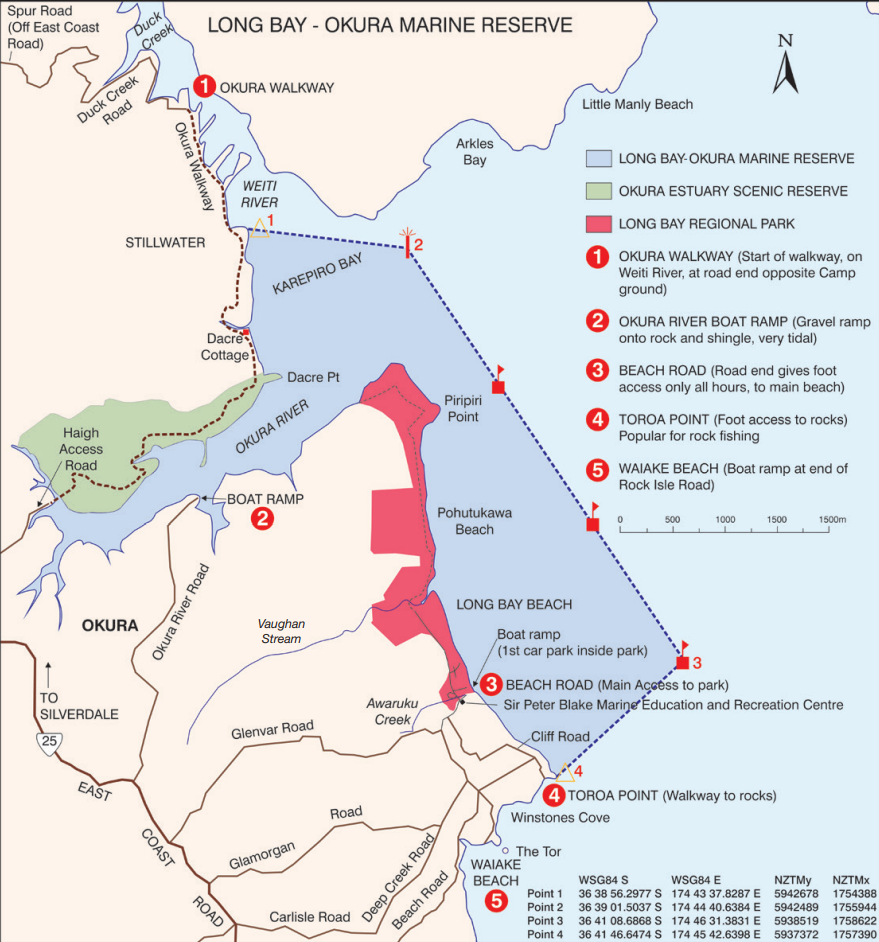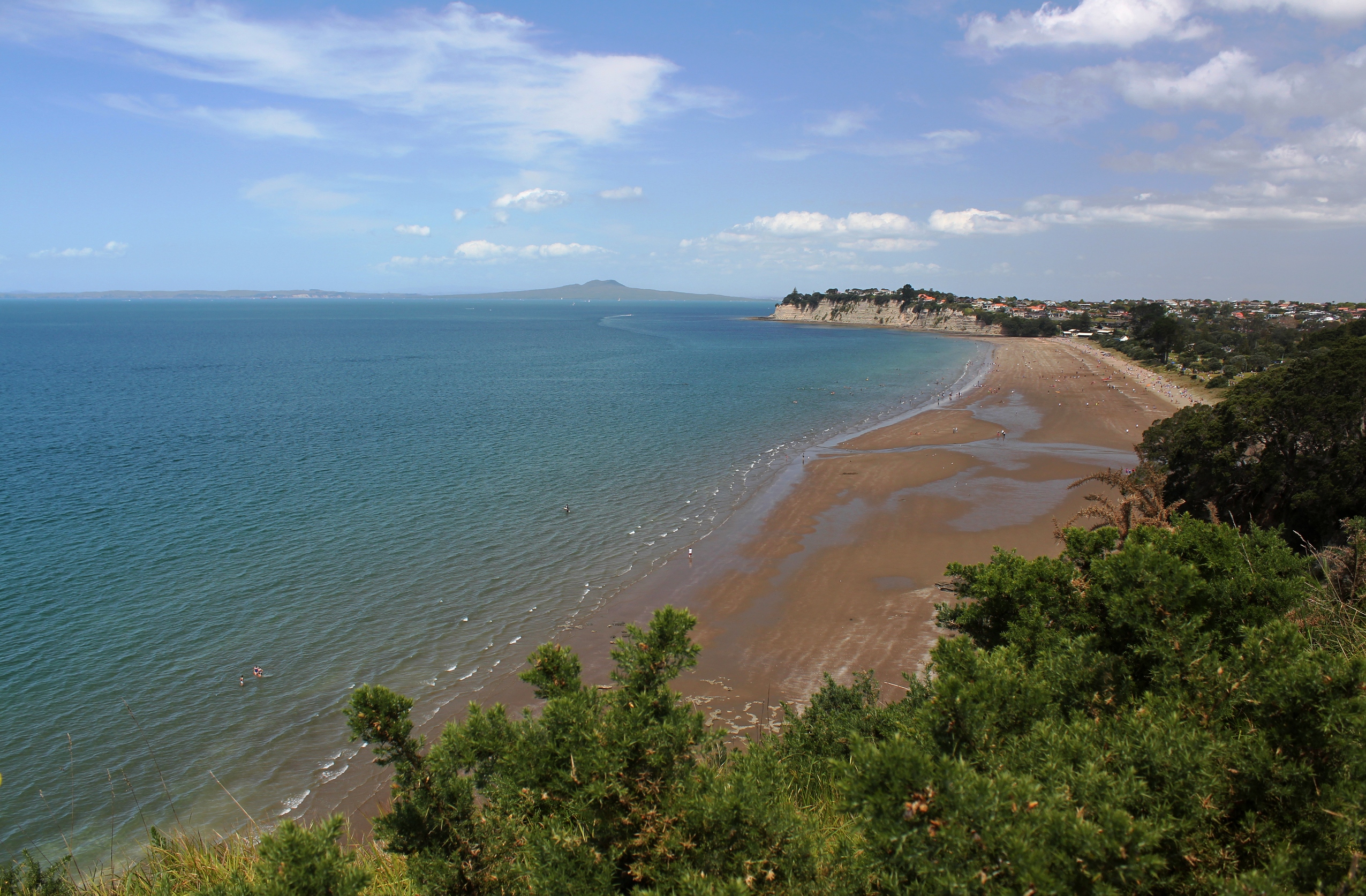While it is true that Marine Reserves can be an option to preserve and/or enhance fish stocks, DOC’s Marine Reserve teams have two key functions – scientific monitoring and compliance.
The Marine Reserves Act 1971 states “preserving…for the scientific study of marine life, areas of New Zealand that contain underwater scenery, natural features, or marine life, of such distinctive quality, or so typical, or beautiful, or unique, that their continued preservation is in the national interest”
Long Bay Okura Marine Reserve is one of two active “Sentinel Sites” identified by DOC. Sentinel sites are marine reserves which can provide early warnings of threats to our oceans. In partnership with mana whenua and collaborating with University of Auckland, Massey University and Sir Peter Blake MERC, DOC currently has two research projects.

Two Research Projects:
“How do marine reserves in urban areas protect biodiversity and contribute to an MPA (Marine Protection Area) network?”. It investigates ways to measure the quality and health of Long Bay-Okura Marine Reserve as a Marine Reserve in an urban setting to find out how well it is protecting the environment. The results of the project will inform the development of marine protected areas in urban settings in the future
“How could our biodiversity monitoring techniques be more efficient”. This explores using genetic information to manage biodiversity as well as engage citizen science into DOC’s marine reserve and marine biodiversity management.


